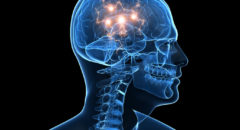
About 2.3 million Americans have bipolar disorder, according to Mental Health America. Although the rates of Black people with bipolar disorder are fairly the same as other Americans, Blacks are less likely to be diagnosed with this disorder leading to a lack of treatment. The main reason Black people go untreated for bipolar disorder is due to a lack of trust in doctors and the cultural barrier between doctors and patients. Despite this, it's important that Black people recognize the symptoms of bipolar disorder and understand the risk of leaving this condition untreated. Those who have been diagnosed with bipolar disorder should also understand the risk of not taking their prescribed medication. Not taking prescribed medications can lead to relapse, hospitalization and increased risk of suicide for people with bipolar disorder.
A new study examines why this happens, finding six key factors that stop people who have bipolar disorder from taking their medications.
"Bipolar disorder is a mental health condition that causes extreme mood swings that include emotional highs, known as mania or hypomania, and depressive lows," lead researcher Asta Ratna Prajapati, a postgraduate researcher at the University of East Anglia's School of Pharmacy says. "We wanted to better understand what stops people from taking their medication."
The research team reviewed 57 studies, mostly surveys and interviews, involving nearly 33,000 patients and health care professionals. About 79 percent of the studies were conducted in the United States and Europe.
1. Unpleasant Side Effects
Many people with bipolar disorder may stop taking their prescribed medication or not take it at all due to the unpleasant side effects that come along with it. The side effects may vary depending on the medication, but can include the following:
- Nausea
- Tremors
- Hair loss
- Sexual problems
- Weight gain
- Liver damage
- Kidney damage
- Diarrhea
- Belly pain
- Skin reaction
These medications can also affect the way your liver works or the number of white blood cells or platelets you have and require regular tests to make sure you are healthy. Those who take Geodon (an antipsychotic drug ziprasidone) may experience a rare but serious skin reaction called DRESS syndrome (drug reaction with eosinophilia and systemic symptoms).
Although these symptoms may be understandably scary, it's important you continue to take your medication. Stopping your medication without your doctor's approval can be dangerous. If you are feeling good, that likely means the medication is working. So even when you are not experiencing any episodes, continue to take your medication unless otherwise instructed by your doctor.
If the side effects are unbearable, don't assume you have to live with them. Talk with your doctor about changing
the dose, taking another medication to control the side effects or trying a different medication altogether.
"We recommend that the prescribers talk to patients about their thoughts and experiences of the medications they take, paying particular attention to these issues which may stop patients from taking their meds," Prajapati adds.
2. Difficulty Remembering to Take Medications
Sometimes we get busy and caught up in the day-to-day hassle of life and forget to take our medications. If you have an intense medication regimen, try talking with your doctor about once-a-day or extended-release medications. You may also consider trying the following:
- Keep a list
- Take your meds at the same time
- Leave yourself notes
- Use a pillbox
- Keep a calendar
- Set an alarm
- Ask your pharmacist if they have reminder tops (caps with reminder alarms for your medications).
- Turn your bottle upside down after you take your pills, then turn it upright at the end of the day as a reminder to start fresh tomorrow
3. Fear of addiction
Mood stabilizers are not considered addictive. However, if you have been taking them for months or years, your body has adjusted to them. This can result in withdrawal. The withdrawal is generally mild, however. The greatest risk of stopping medication is the return of bipolar disorder symptoms. If your doctor deems it appropriate, you will be advised to lower your dose gradually over a four to six-week period. If you feel unwell after stopping medication, your doctor may advise you to go back to your original dose or find another dose that works better for you.
4. Preference for Alternative Treatment
Many people are not fond of medication and opt to try alternative methods. Some of these methods have been supported by scientific evidence to provide benefits in treating depression, although the effectiveness is uncertain.
Alternative treatments should not be used as a replacement for medications. They should be used in conjunction with medication. Many people have reported increased benefits with combining the two together. You should always check with your doctor before starting any alternative treatments because they may interact with any medication you are already taking and cause unintended side effects.
5. Beliefs and knowledge About the Disorder
Many people have their own beliefs about what bipolar disorder is or may feed into myths causing them to try alternative methods that don't work instead of taking their medications. Some of these myths include:
- Bipolar disorder is just mood swings, which everybody has
- Bipolar disorder can be cured through diet and exercise.
- Artists with bipolar disorder will lose their creativity if they get treatment.
- All medications for bipolar disorder are the same.
These myths can be dispelled by research on this condition and discussion with your doctor.
6. Family and Health Care Professionals
Having the right medical professional that makes you comfortable and that you can trust is essential because a lack of trust can result in you not following the medications your doctor prescribes you. This may take some time, but you should make sure you are being heard and your doctor is finding the best solution for your condition. If you don't have that with your current doctor, keep looking until you find one you are comfortable with.
The researchers are developing a tool to identify people who struggle to take their medication and their individual reasons. They hope it will help prescribers and patients work together and offer individualized support.
Bipolar disorder may come with a lot of fear, but if you take your medications and follow a healthy regimen, it is completely functional.









